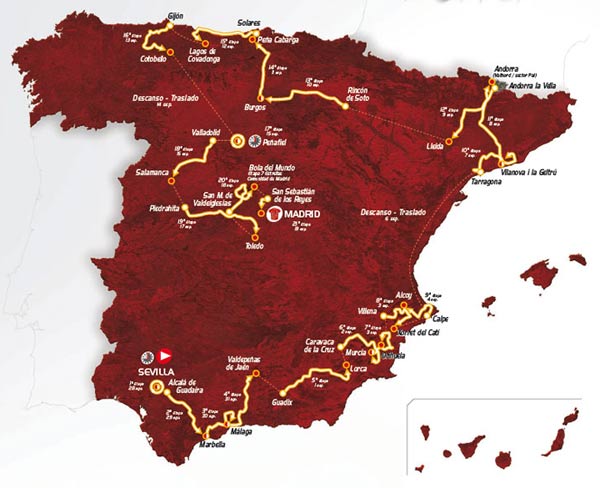Javier Guillén confirms that there is uncertainty over new “World Tour”
 Despite the insistence of International Cycling Union (UCI) president Pat McQuaid that the new rules for team participation in the sport’s big races will be adhered to, the heads of the Grand Tour organisations are less sure. The latest to confirm that the big race organisers have doubts over the new system is Javier Guillén, head of Unipublic, the owner of the Vuelta a España, as he told Biciciclismo.
Despite the insistence of International Cycling Union (UCI) president Pat McQuaid that the new rules for team participation in the sport’s big races will be adhered to, the heads of the Grand Tour organisations are less sure. The latest to confirm that the big race organisers have doubts over the new system is Javier Guillén, head of Unipublic, the owner of the Vuelta a España, as he told Biciciclismo.
Guillén referred to the agreement signed by the race organisers and the UCI in September 2008, prior to the World Championships in Varese, Italy. That agreement guaranteed invitations to the races owned by the three Grand Tour organisers to the top 18 teams in the World, regardless of the teams’ status.
The new regulations, as part of the new UCI World Tour, mirror the original 2005 ProTour and would guarantee invitation to the 18 “ProTeams”. Professional Continental team Androni Giocattoli finished 17th in the UCI World Ranking this year; under the 2008 agreement it is guaranteed a start at all three Grand Tours in 2011, under the new rules it is not.
“At the current time: 21 October 2010,” said Guillén, “what exists for the rules of participation in the races of ASO, RCS and Unipublic is an agreement signed with the UCI that if you make the top 17 of the 2010 World ranking you have access to our races.”
Guillén’s words confirm that, despite McQuaid’s insistence that all parties would adhere to the new regulations, the Grand Tour organisers have not yet signed up to anything that supersedes what they agreed two years ago.
“What is true, “he explained, “is that there are very advanced negotiations with the UCI to reach agreement of a criterion for participation for 2011 in order to modify the agreement of 2008.”
While there is currently no desire for the three Grand Tour organisers to simply fall into line over the issue, Guillén confirmed that he expected the parties to reach an agreement.
“There is a fair and constructive dialogue and I think it is quite possible to reach agreement in the near future because it is necessary.”
“I can not go further,” he said.